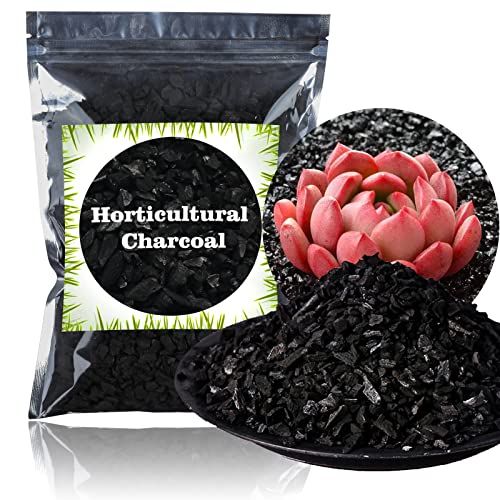- How to Find the Best Garden Pruning Saw: Our Top Picks - January 5, 2024
- Garden Tower Project Review: How To Start Home Gardening ASAP? - January 5, 2024
- Best Garden Scissors Guide: Which Model Suits You Best? - January 5, 2024
Using horticultural charcoal in your garden is one of the best ways to improve your soil. It has been used for many purposes and has many benefits – such as improving soil structure, adding essential nutrients like calcium and magnesium, reducing compaction from heavy rainfall or irrigation, and absorbing excess water.
Horticultural charcoal is also used to help loosen clay soils and reduce salt build-up on plants. By adding this mineralized material to your garden, you will be able to grow healthier plants with fewer weeds.
This post will explore why horticultural charcoal is such a great addition to your soil and how you can find the best product for your needs.
What is Horticultural Charcoal?
Horticultural charcoal (also known as biochar) is produced through the pyrolysis of organic materials such as wood. It is a black, alkaline carbon composed of medium, small or fine particles of charcoal made from the slow-burning of hardwood trees, coal, or coconut shells. Hardwoods have been found to produce the best quality of horticultural charcoal.
What Are the Benefits of Horticultural Charcoal?
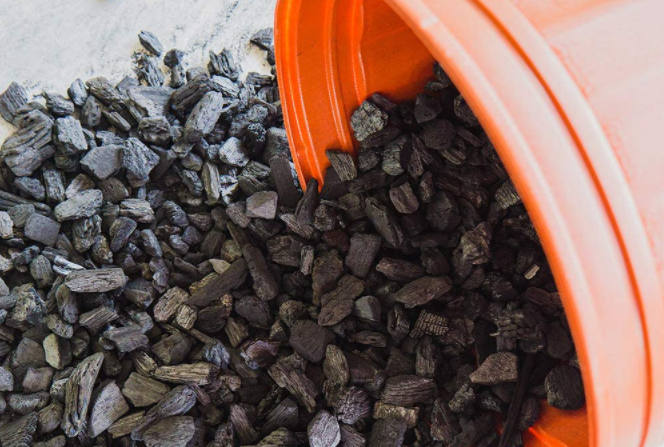
1. Reduces Soil Acidity
Acidic soils have low pH levels (<5.5 or 6), which results in aluminum toxicity. High acidity in soils affects the growth of plants resulting in low crop yields. Lime (calcium hydroxide) has been used widely to reduce acidity in soils. Currently, many farmers are slowly embracing horticultural charcoal as an alternative to reduce acidity in soils.
Since it is a carbon-rich material, horticultural charcoal is highly alkaline. When applied to the soil, the alkalinity increases the pH levels, reducing the acidity. The increased soil pH reduces aluminum toxicity in the ground resulting in improved crop yields.
2. Removes Accumulated Pesticides
Horticultural charcoal has excellent absorption qualities, which are perfect for counteracting the harmful effects of pesticides.
Mixing one pound of charcoal with one gallon of water will give you a solution that will clean up pesticide build-up in about 100 square feet of soil. However, it is essential to note that horticultural charcoal helps remove organic pesticides only and not synthetic ones.
3. Conditioning Heavy Soils
Horticultural charcoal has low density, and when added to the soil, it helps lighten heavy soils. This allows the plants’ roots to grow better, which increases drainage and air circulation in the soil. By working the same way as lime to increase pH, horticultural charcoal increases minerals such as calcium, phosphorus, magnesium, and potassium.
4. Reduces the Need for Regular Irrigation
Since horticultural charcoal retains moisture, plants can survive even when there is minimal or sporadic irrigation. By increasing the water holding capacity, horticultural charcoal increases plants’ chances of thriving even in sandy soils. Even in other types of soils, improved moisture retention has seen improved crop performance and increased yields.
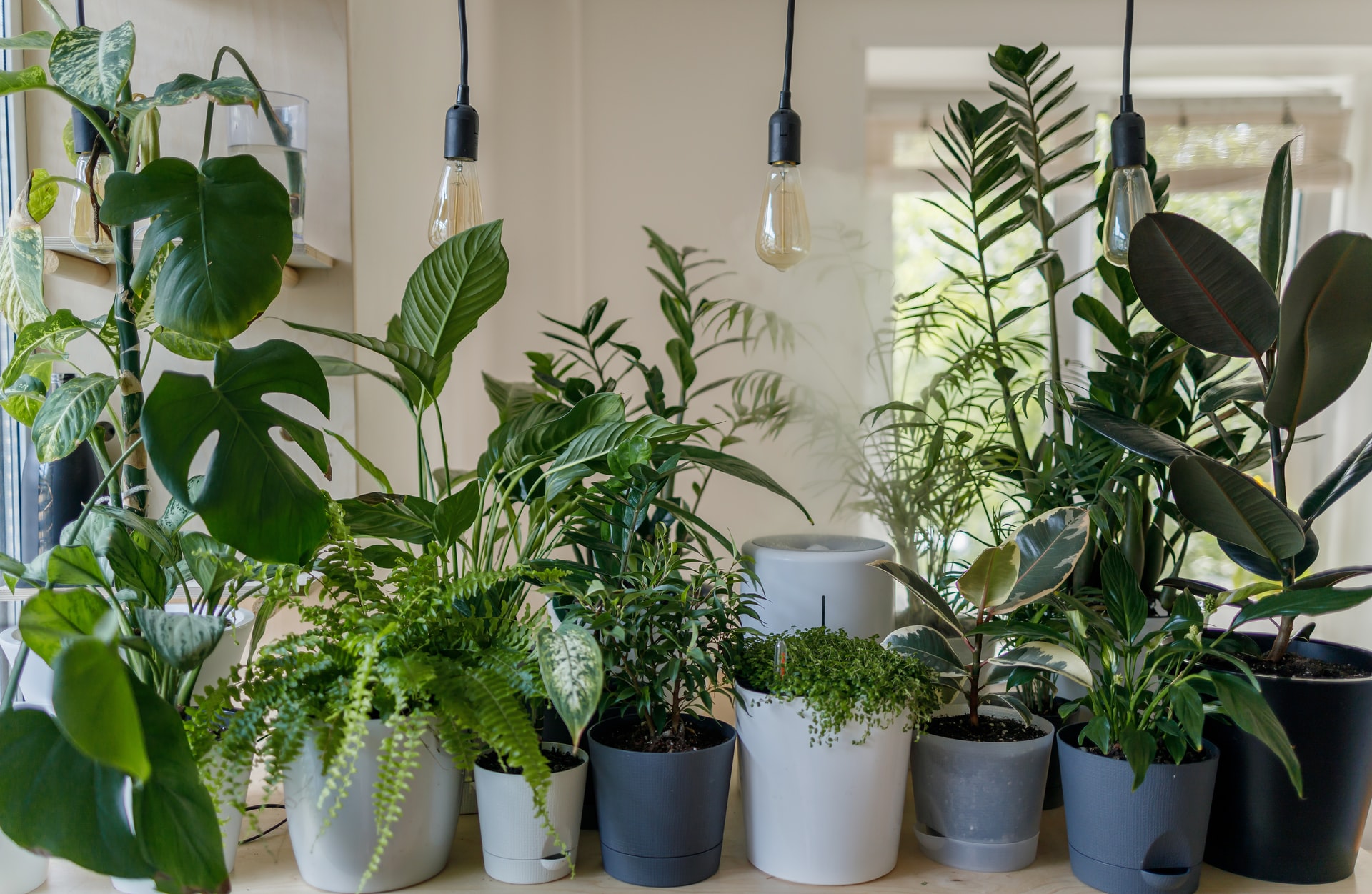
5. Less Fertilizer Use
Using horticultural charcoal in your garden prevents leaching and fertilizer runoff. This helps retain nutrients in the soil. Making sure that most of the fertilizer applied remains in the soil eliminates the need for regular application of fertilizers. Horticultural charcoal also helps environmental conservation since no chemicals will be washed into the rivers and other water bodies.
6. It Absorbs Impurities in the Soil
Soils can be contaminated by hard metals such as lead, zinc, and cadmium or dangerous chemicals such as arsenic and other pollutants. When added to the soil, horticultural charcoal absorbs all these impurities and poisons, leaving your plants to grow in a healthy environment.
7. Improves Soil Drainage
The porous nature of biochar (horticultural charcoal) helps draining excess water. Due to its porous nature, it can absorb excess water from the soil. In so doing, it keeps your garden in perfect condition and prevents the soil from becoming waterlogged. The stored water can later benefit the plants when the soil has dried out.
8. Improves Soil Fertility
The soil in your garden is an ecosystem of its own. Many essential bacteria and fungi play a crucial role in the nutrient cycle that supports all other life forms on earth. They help break down organic material, which improves soil fertility. Due to its complex and porous structure, biochar provides these organisms with a safe place to thrive in the nooks and crannies on its surface.
Why Using Horticultural Charcoal is Better than Chemical Fertilizers
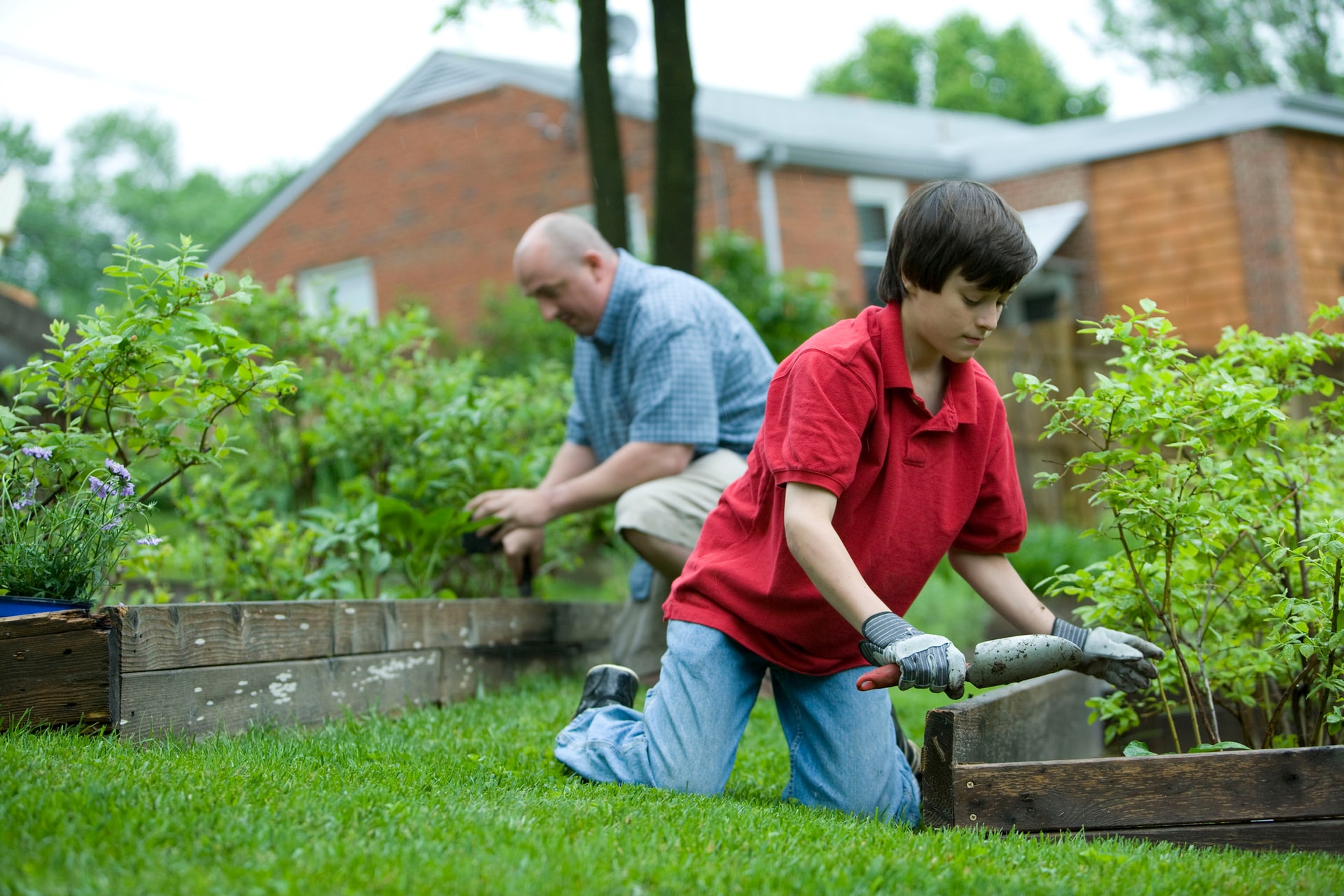
You can improve soil quality by adding a variety of products. Depending on the soil’s lack, chemical fertilizers have been used to add the missing ingredients in the soil and improve yields. However, the long-term effects of the use of fertilizers only help to worsen the situation. Below are reasons why horticultural charcoal is your best bet compared to chemical fertilizers.
1. Environmental Impact
Horticultural charcoal is generally safe and has no adverse effects on the environment. However, regular use of chemical fertilizers leads to excess release of nitrogen in the soil. Most of this nitrogen is then released into the atmosphere as carbon dioxide and nitrous oxide. This, in turn, causes the greenhouse effect and leads to global warming.
2. Growth of Weeds
One benefit of horticultural charcoal is that you can spread it on your garden as a mulch. When used this way, it helps retain water in the soil by reducing the rate of evaporation. It also discourages the growth of weeds that would otherwise compete with your plants for nutrients.
On the other hand, applying chemical fertilizers encourages the growth of weeds. With improved soil nutrition, weeds grow fast, choking your plants and depleting the nutrients meant for them.
3. Plant Diseases
Horticultural charcoal is a good option since it enhances pest resistance and diseases. Adding charcoal to the soil also reduces the chances of fungal infections. What the charcoal doe is that it kills the mycotoxins that are created by mold, reducing the chances of fungal infections.
In contrast, nitrogenous fertilizers add excess nitrogen to the soil, which encourages plant disease. The presence of such nitrogen may lead to conditions such as mosaic infection.
4. Pollution of Water Resources
To many people, this may be the most popular reason why the use of horticultural charcoal should be encouraged over chemical fertilizers. The use of these fertilizers has detrimental effects on the water resources and the environment as a whole. Being highly soluble, the fertilizers leach away with groundwater or rainwater before the nutrients can benefit the crops. When this happens, dangerous chemicals like nitrogen and phosphorus affect the marine ecosystem leading to the death of fish and other aquatic life.
5. Effects on Micro-organisms
While horticultural charcoal works on reducing the soil pH, chemical fertilizers do the opposite. Continuous use of these fertilizers raises the pH of the soil – making it more acidic. When this happens, the acidity kills some of the crucial micro-organisms living in the soil.
The microbes are replaced by other organisms that thrive in acidic environments, which may affect your crops. Continued use of chemical fertilizers leads to increased pests that cause diseases and affect crop growth leading to low yields.
Factors to Consider When Buying Horticultural Charcoal
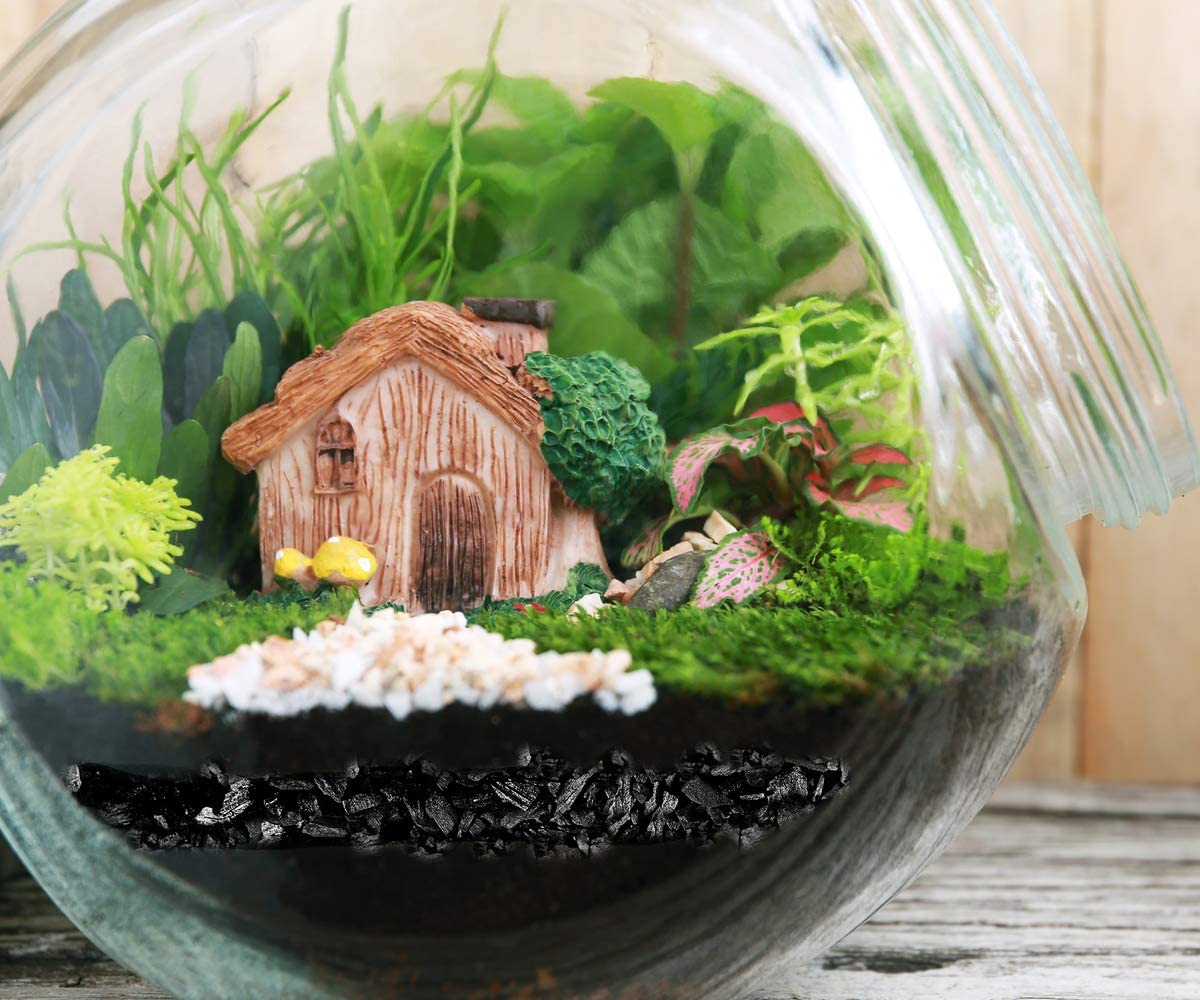
Due to its remarkable properties, horticultural charcoal continues to be used in different agricultural activities. But with so many applications, you may be wondering whether any charcoal will serve your purpose, or you need to go to specifics. Below are three factors to have in mind before buying your horticultural charcoal.
1. Intended Use
Horticultural charcoal is used for different purposes, from being applied as a mulch to helping in adjusting soil pH, absorbing soil impurities, etc. If you need the charcoal to serve a specific purpose, you will need to consider the best physical properties like the size.
For example, if you want to increase water retention in the soil, buy charcoal with fine particles. The charcoal gets in the small spaces in the soil, creating tight pores that help retain water for a long time. The same case applies if you want to use the charcoal as a mulch, the fine particles retain the soil moisture and prevent the growth of weeds.
2. Quality of the Product
The quality of the horticultural charcoal may vary depending on how it’s produced and the source material. Hardwood trees have the highest quality horticultural charcoal. In addition, charcoal from such trees does not break down easily and will benefit the soil for a long time. Looking for quality charcoal will ensure that you avoid substandard products and guarantee optimum results.
3. Amount
The amount of horticultural charcoal you need depends on how and where you intend to use it. For instance, the amount of charcoal required in a vegetable garden may be more than what is needed to be used in pots and tubs. While considering the amount of charcoal, price is an essential factor to consider. This is because the final cost of the charcoal will be determined by the amount procured.
Top Five Brands of Horticultural Charcoal According to Customer Reviews
We chose the horticultural charcoal in this guide based on affordability, availability, and positive customer reviews.
1. Mosser Lee ML0810 Horticultural Charcoal
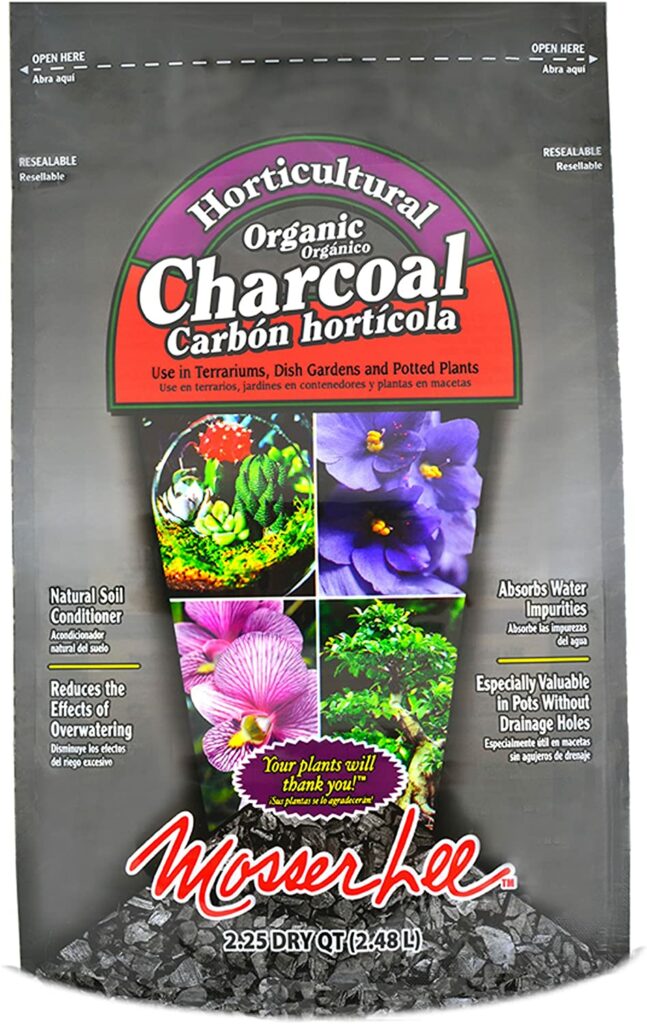
The Mosser Lee horticultural charcoal comes in a 2.25 dry quart package. It enjoys a high rating, with 85% of the 2,217 people giving it five stars. You can use the charcoal in various places like terrariums, potted plants, and dish gardens. It performs well even in pots that do not have drainage holes.
This charcoal is easy to use and improves oxygen levels and soil structure. When used in pots, it reduces stagnant water and enhances the ability of potting soils to hold nutrients. It also acts as a natural soil conditioner by increasing the number of beneficial microbes in the soil.
Mosser Lee organic charcoal provides maximum absorption for water & fertilizer, essential for good plant growth. Uniquely made from fruit trees, it is necessary for pots without drainage holes, such as terrariums & dish gardens.
2. Horticultural Charcoal by Perfect Plants
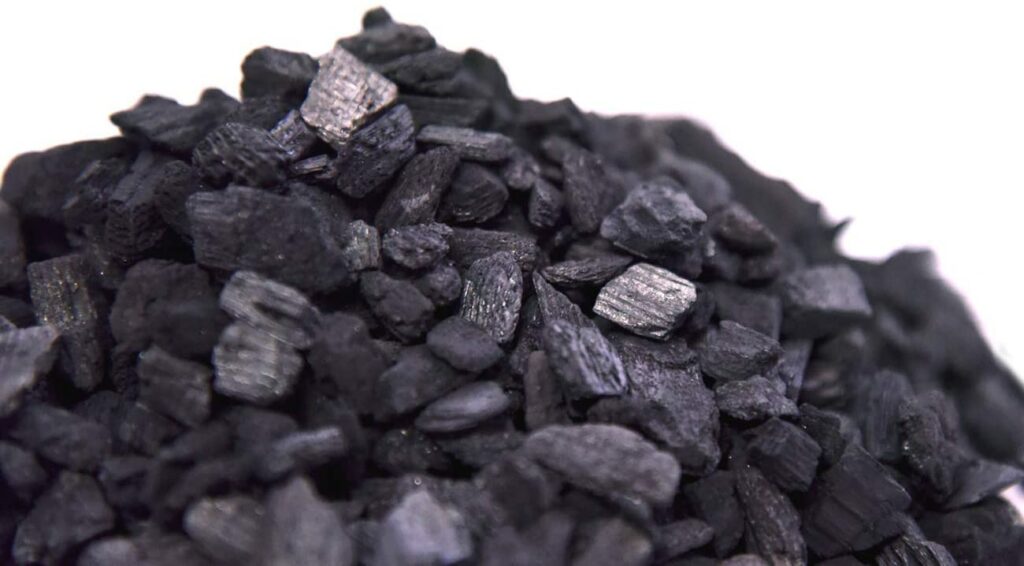
This Perfect Plants horticultural charcoal is lightweight with a very porous structure that helps drain excess moisture from potted plants or containers. It is packed in a 24 oz: package that contains small and medium-size pieces of charcoal.
It acts as a natural filter of excess moisture and harmful bacteria in terrariums and containers where it is used. The small and medium-size charcoals give room for air circulation, thus aerating the soil. This gives the roots room to grow without the soil compacting on them.
Perfect Plants Horticultural Charcoal is a lightweight and mild soil additive that will assist in draining excess moisture from any container or potted plant. Charcoal prolongs the life of soil media by balancing pH levels and sweetening the soil of potted plants and terrariums.
3. Horticultural Charcoal for Plants
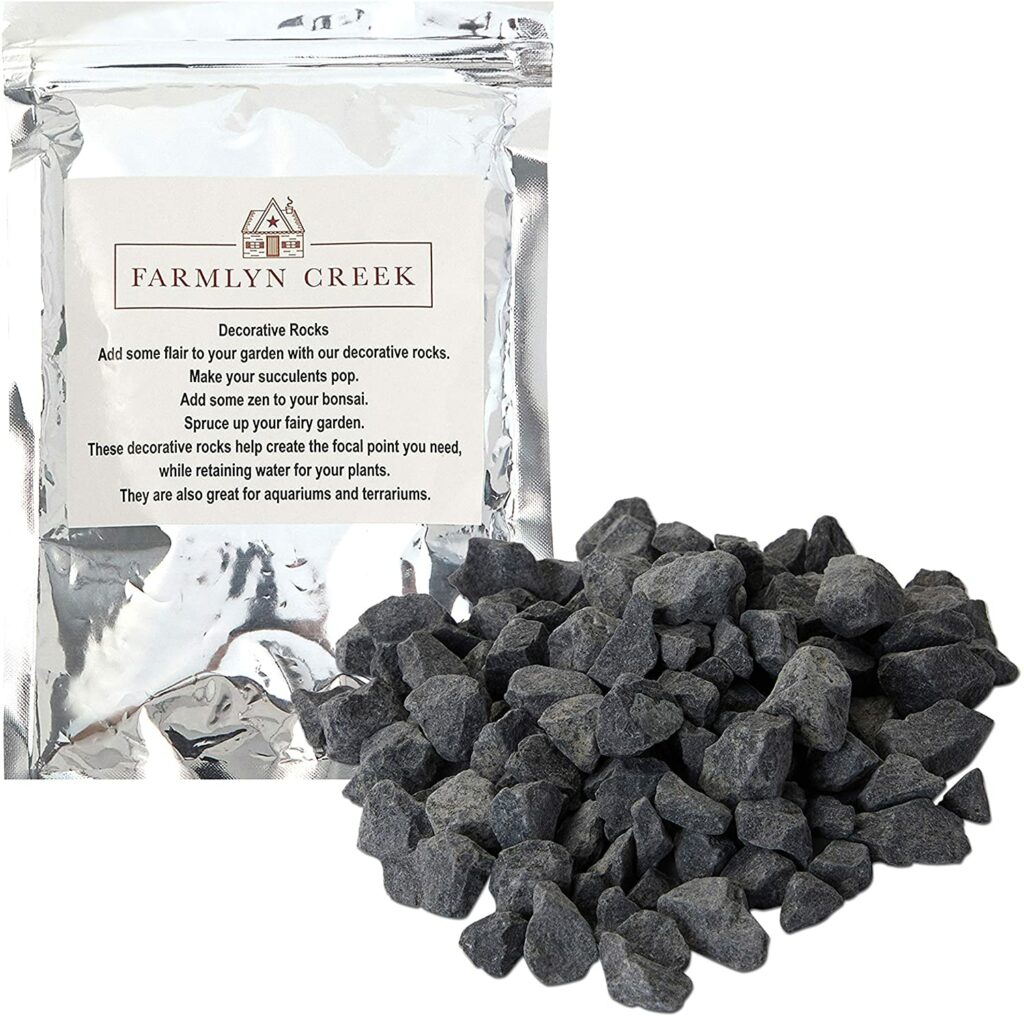
It comes packed in a two-pound bag and enjoys a high rating, with 70% of the users rating it five stars. This horticultural charcoal is processed at high temperatures giving it high absorption qualities to protect plants from excess water. You can use this charcoal in terrariums, potted plants, rock gardens, aquariums, or ponds. It is also used in pots as a bottom layer and helps infiltration, drainage, and absorption of odors.
Buying this charcoal will give you enough to use in your desired areas. You will also receive one additional bag of charcoal for gardening at no extra cost.
This 2 pound bag of black rocks for plants, fish tank decor, DIY party decor, vase filler, or for landscaping. Made from high quality stone, the black aquarium rocks are ideal for retaining water to ensure your plants grow to their full potential!
4. Sprig and Stone Horticultural Charcoal
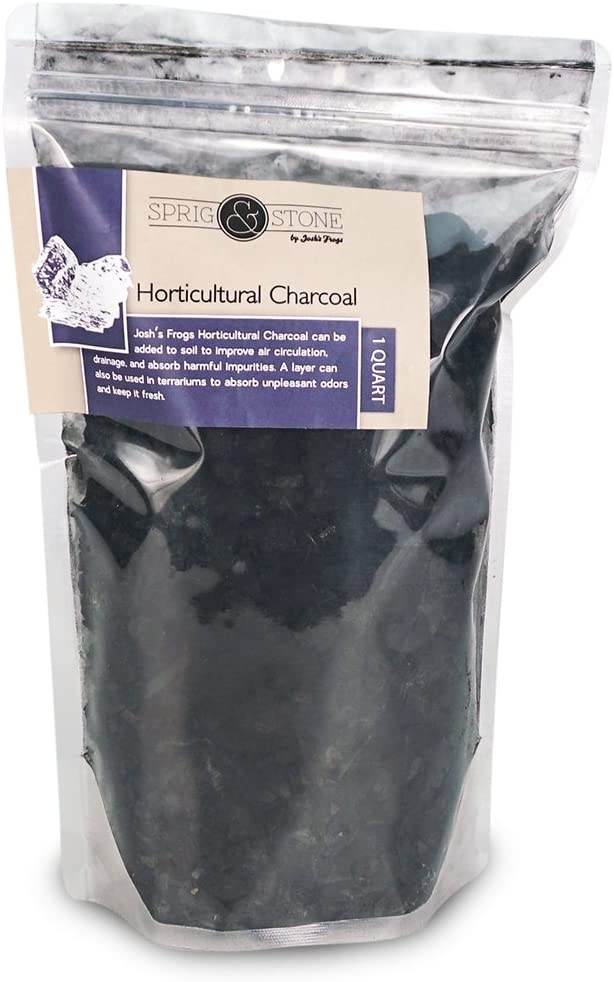
Sprig and Stone horticultural charcoal is derived exclusively from hardwoods. It is usually packed in a 1-quart pack. And has an average rating of 4.7, with 81% of users giving it a five-star rating. When used in terrariums, it absorbs foul odors and acts as a filter.
It is lightweight, meaning that it is used in pots or terrariums to decrease the overall weight and density of the soil. When used in containers that do not have holes, it improves drainage by absorbing excess water and releasing the water to the plants when needed.
Horticultural Charcoal can be used as the second layer in the terrarium substrate. It acts as a filter and keeps the terrarium fresh due to its odor-reducing capabilities.
5. Horticultural Charcoal from Natural Hardwood
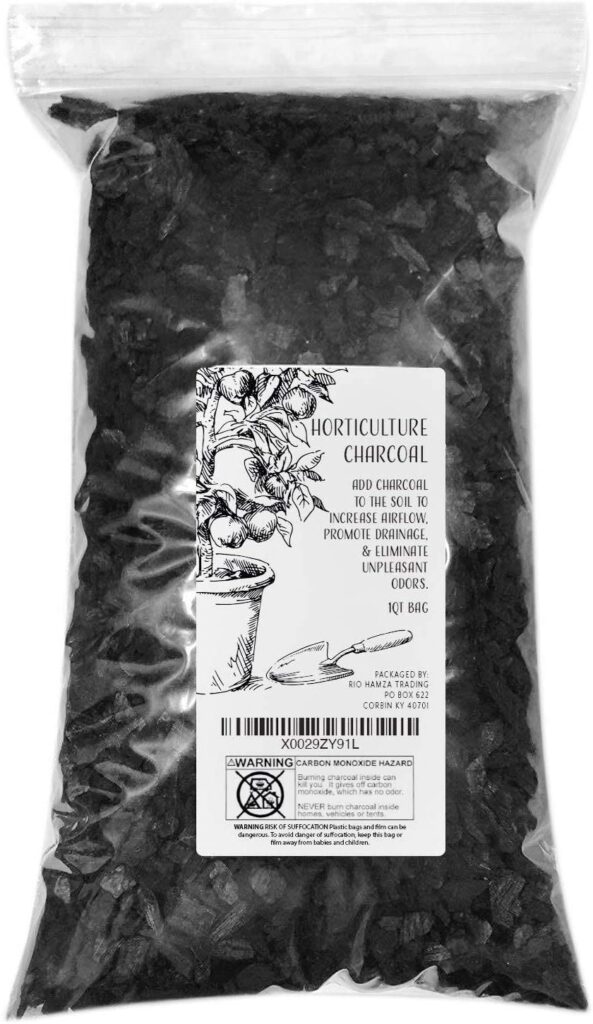
This horticultural charcoal is made from 100% hardwood. It is mainly used in orchids, terrariums, and gardening. It has an average rating of 4.7, with 81 percent of 3,321 users giving it a five-star rating. It is a great additive to assist in the drainage of potted plants and terrariums. It also filters harmful odors and bacteria and at the same time improving air circulation in the soil.
Horticulture charcoal is perfect for terrariums, bonsai trees, air plants, orchids; indoor/outdoor container gardening.
FAQs
Answer: Yes, regular charcoal also helps absorb excess water promotes the growth of beneficial bacteria and fungi.
Answer: No. This is because grilling charcoal may be contaminated with other chemicals which might be harmful to your plants.
Answer: You can use live moss instead of charcoal. It absorbs foul odors in a terrarium and excess water, which would otherwise cause rotting, leading to foul odors.
Conclusion
Horticultural charcoal has immense benefits not only to your gardening activities but to the universe. By helping in moisture retention, the charcoal ensures that crops grow to maturity without lacking water. Its alkaline properties help reduce acidity in the soil, creating the right environment for the growth of healthy plants, thereby improving their yields.
With all these qualities, it’s no doubt that horticultural charcoal would be an essential addition to your garden. Perhaps it is time you change from using chemical fertilizers to a more environmentally friendly product and watch your garden thrive.






